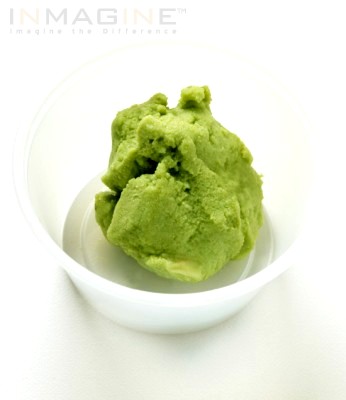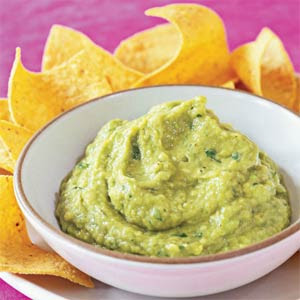Book Review: The Story of Sushi: An Unlikely Saga of Raw Fish and Rice, by Trevor Corson
One-line summary: Sushi is yummy, but watch out for tapeworms!

Reviews:
Amazon: Average: 4.4. Mode: 5 stars.
Goodreads: Average: 3.74. Mode: 4 stars.
Everything you never knew about sushi-its surprising origins, the colorful lives of its chefs, the bizarre behavior of the creatures that compose it-is revealed in this entertaining documentary account by the author of the highly acclaimed The Secret Life of Lobsters.
When a twenty-year-old woman arrives at America’s first sushi-chef training academy in Los Angeles, she is unprepared for the challenges ahead: knives like swords, instructors like samurai, prejudice against female chefs, demanding Hollywood customers-and that’s just the first two weeks.
In this richly reported story, journalist Trevor Corson shadows several American sushi novices and a master Japanese chef, taking the reader behind the scenes as the students strive to master the elusive art of cooking without cooking. With the same eye for drama and humor that Corson brings to the exploits of the chefs, he delves into the biology and natural
history of the creatures of the sea. He illuminates sushi’s beginnings as an Indo-Chinese meal akin to cheese, describes its reinvention in bustling 19th-century Tokyo as a cheap fast food, and tells the story of the pioneers who brought it to America. He shows this unlikely meal now exploding into the American heartland just as the long-term future of sushi may be unraveling.
The Story of Sushi is a compelling tale of human determination as well as a delectable smorgasbord of surprising food science, intrepid reporting, and provocative cultural history.
Sushi can now be found in supermarkets from Alabama to Idaho; it's as American as bratwurst and dim sum. But it wasn't always this way. The Story of Sushi is a history of yummy raw fish eatin' from prehistoric Japan to the present, and how it spread throughout the United States and changed traditional Japanese sushi in the process.
Besides the history of sushi (like many "traditional" foods, the sushi eaten today bears very little resemblance to what people called "sushi" originally), you will get a lot of information about marine biology and food chemistry. If you're the sort of person who watches the Food Network, particularly the more science-y shows, you'll love this book.
To make it less of a dry "commodity" book, Corson tells the story of sushi as we follow the adventures of Kate and her fellow students at the California Sushi Academy. Supposedly all the people and events described are real, as Corson actually followed the sushi class while writing the book, but there seems to be an awful lot of dramatization and embellishment. You may or may not find that this enhances your enjoyment of the book -- some of the characters are entertaining, like the Japanese former boy band star and the Swedish model who are among the students, but they're only there to provide a somewhat contrived "human interest" angle, for those who don't find sushi interesting enough, I guess.
So, you probably already know whether or not you like this kind of book. If so, you should find it interesting and educational. Corson's writing is extremely simple and his attempts at wittiness border on juvenile (lots of fish and seaweed sex jokes), and I really got tired of hearing about the manga "Sushi Chef Kirara" which is (as Corson tells us every single time he refers to it, which is almost every chapter, and there are forty-something very short chapters) about a young female sushi chef. But, I still learned a lot, and it made me hungry for sushi.
Among the things I learned from this book:
1. I am a bad sushi eater. Like most Americans, I dip my sushi in soy sauce and wasabi. It turns out, to a sushi chef this is the equivalent of ordering a steak well done. The chef is supposed to provide all the seasoning and ingredients you need to each piece. (If you're eating prepackaged supermarket sushi, you're excused, since that shit barely counts as sushi anyway.)
2. You don't want to know about all the bacteria, viruses, worms, and other parasites that can infest your gut as a result of eating raw seafood.
3. Even if you are a sushi lover, you have probably never eaten actual wasabi. (99% of all "wasabi" served in the U.S. is just horseradish and mustard.)
4. Do not mistake wasabi for guacamole. (Okay, actually I didn't learn that from this book. I learned that the first time I ever encountered wasabi...)
Not the same thing!


Verdict: There are two kinds of people: those who like sushi, and those who are sad, sad pitiful souls. I recommend this book for anyone in the first category.

Reviews:
Amazon: Average: 4.4. Mode: 5 stars.
Goodreads: Average: 3.74. Mode: 4 stars.
Everything you never knew about sushi-its surprising origins, the colorful lives of its chefs, the bizarre behavior of the creatures that compose it-is revealed in this entertaining documentary account by the author of the highly acclaimed The Secret Life of Lobsters.
When a twenty-year-old woman arrives at America’s first sushi-chef training academy in Los Angeles, she is unprepared for the challenges ahead: knives like swords, instructors like samurai, prejudice against female chefs, demanding Hollywood customers-and that’s just the first two weeks.
In this richly reported story, journalist Trevor Corson shadows several American sushi novices and a master Japanese chef, taking the reader behind the scenes as the students strive to master the elusive art of cooking without cooking. With the same eye for drama and humor that Corson brings to the exploits of the chefs, he delves into the biology and natural
history of the creatures of the sea. He illuminates sushi’s beginnings as an Indo-Chinese meal akin to cheese, describes its reinvention in bustling 19th-century Tokyo as a cheap fast food, and tells the story of the pioneers who brought it to America. He shows this unlikely meal now exploding into the American heartland just as the long-term future of sushi may be unraveling.
The Story of Sushi is a compelling tale of human determination as well as a delectable smorgasbord of surprising food science, intrepid reporting, and provocative cultural history.
Sushi can now be found in supermarkets from Alabama to Idaho; it's as American as bratwurst and dim sum. But it wasn't always this way. The Story of Sushi is a history of yummy raw fish eatin' from prehistoric Japan to the present, and how it spread throughout the United States and changed traditional Japanese sushi in the process.
Besides the history of sushi (like many "traditional" foods, the sushi eaten today bears very little resemblance to what people called "sushi" originally), you will get a lot of information about marine biology and food chemistry. If you're the sort of person who watches the Food Network, particularly the more science-y shows, you'll love this book.
To make it less of a dry "commodity" book, Corson tells the story of sushi as we follow the adventures of Kate and her fellow students at the California Sushi Academy. Supposedly all the people and events described are real, as Corson actually followed the sushi class while writing the book, but there seems to be an awful lot of dramatization and embellishment. You may or may not find that this enhances your enjoyment of the book -- some of the characters are entertaining, like the Japanese former boy band star and the Swedish model who are among the students, but they're only there to provide a somewhat contrived "human interest" angle, for those who don't find sushi interesting enough, I guess.
So, you probably already know whether or not you like this kind of book. If so, you should find it interesting and educational. Corson's writing is extremely simple and his attempts at wittiness border on juvenile (lots of fish and seaweed sex jokes), and I really got tired of hearing about the manga "Sushi Chef Kirara" which is (as Corson tells us every single time he refers to it, which is almost every chapter, and there are forty-something very short chapters) about a young female sushi chef. But, I still learned a lot, and it made me hungry for sushi.
Among the things I learned from this book:
1. I am a bad sushi eater. Like most Americans, I dip my sushi in soy sauce and wasabi. It turns out, to a sushi chef this is the equivalent of ordering a steak well done. The chef is supposed to provide all the seasoning and ingredients you need to each piece. (If you're eating prepackaged supermarket sushi, you're excused, since that shit barely counts as sushi anyway.)
2. You don't want to know about all the bacteria, viruses, worms, and other parasites that can infest your gut as a result of eating raw seafood.
3. Even if you are a sushi lover, you have probably never eaten actual wasabi. (99% of all "wasabi" served in the U.S. is just horseradish and mustard.)
4. Do not mistake wasabi for guacamole. (Okay, actually I didn't learn that from this book. I learned that the first time I ever encountered wasabi...)
Not the same thing!


Verdict: There are two kinds of people: those who like sushi, and those who are sad, sad pitiful souls. I recommend this book for anyone in the first category.